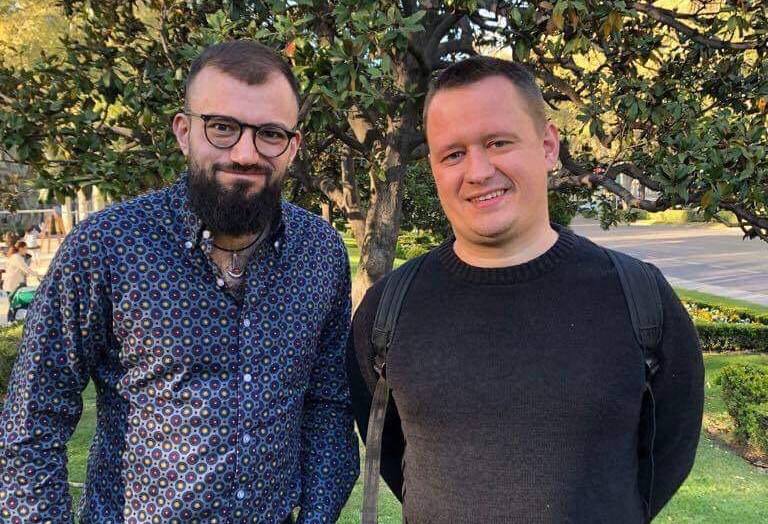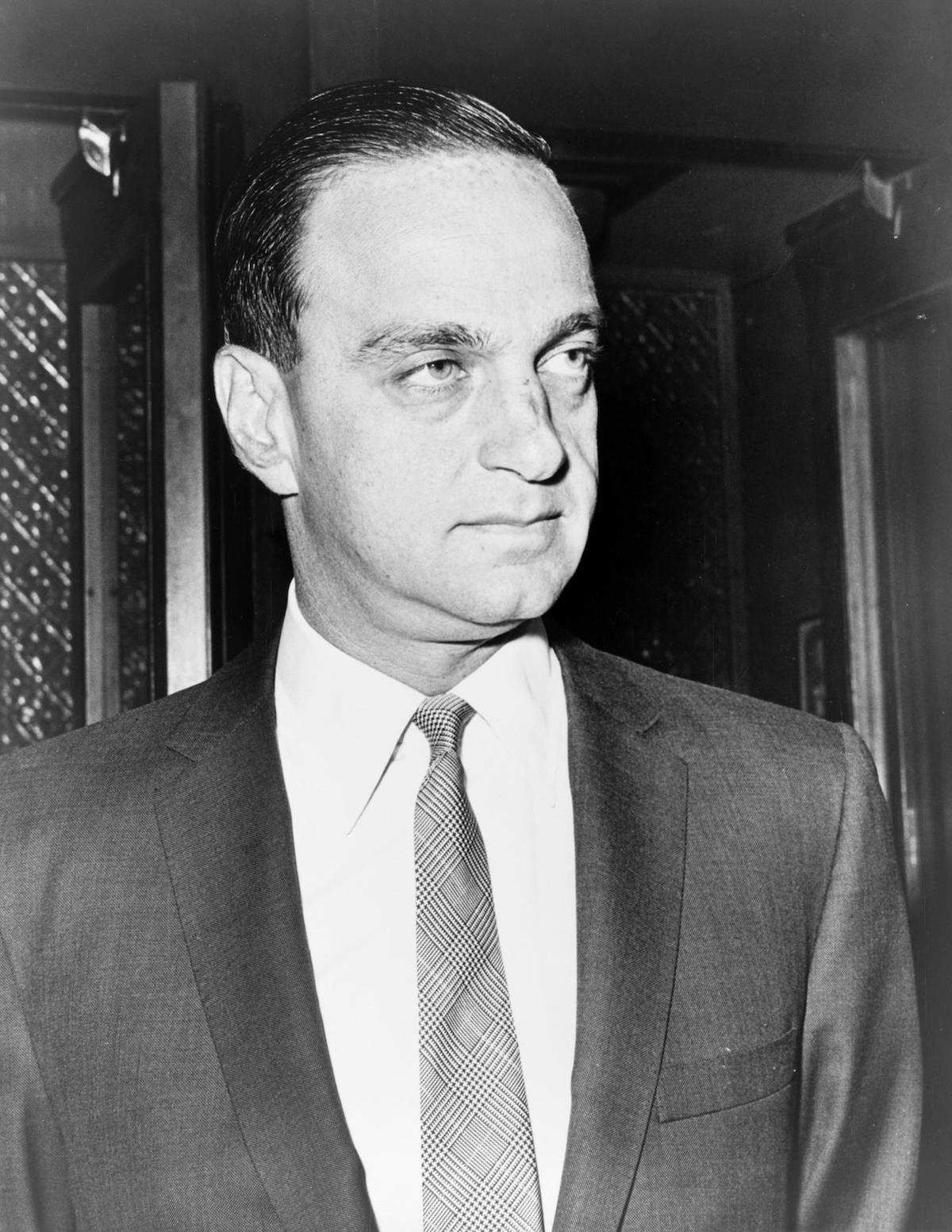The Podcast Shining a Light On History’s ‘Bad Gays’
Credit to Author: Michael Segalov| Date: Thu, 28 Mar 2019 11:54:19 +0000
Despite the best efforts of bigots from all three of the Abrahamic religions – as well as Tory MP Philip Davies, a man alive in 2019 – LGBTQ education is still a thing in Britain. Yes, it seems that a growing number of bigots are doing all they can to convince children that queer people don’t exist – even though literally half of them are open about not being 100 percent heterosexual.
Thankfully, these bigots are failing, and the amount of LGBTQ representation in mainstream culture has been steadily improving over the past few years. Still, we often only talk about the great and the good: LGBTQ heroes. Unsurprisingly, given the hostility the community faces, it’s rare that we bring up the less savoury figures from the past.
The creation of author Huw Lemmey (whose work includes Chubz: The Demonization of My Working Arse and Red Tory: My Corbyn Chemsex Hell) and Berlin-based writer and researcher Ben Miller, Bad Gays is a new podcast that unapologetically uncovers the darker side of gay men in history. In series one they introduce us to some of the men who may not have been mentioned at your LGBTQ+ History Month school assembly; men who aren’t quite as palatable as Harvey Milk or Dale Winton. I chatted to the pair of them to find out exactly why.

VICE: The podcast is all about bad gays, so let’s cut to the chase: who is the worst gay you’ve come across so far?
Huw Lemmey and Ben Miller: Tough question, as they’re a pretty wretched rogue’s gallery. Ernst Röhm, who we featured in our first episode, is definitely up there. He was a leading member of the Nazi Party, the head of the SA brownshirt paramilitaries and one of the world’s first openly gay politicians. But in the end, we thought that Roy Cohn might be even badder.
Worse than a full on Nazi?
If you look back on almost all the most malignant tendencies of American political life in the last half of the 20th Century – McCarthyite witch-hunts, big money in politics, corruption, racial discrimination, anti-leftism and Donald J Trump – behind all of them you’ll find the corrupt figure of Roy Cohn. In his play Angels in America, Tony Kushner calls Cohn “the polestar of human evil”, and it’s hard to argue with that characterisation. But some of our gays are more complicated than purely evil. What do you do with a famous art historian who became a Soviet spy in his youth out of genuine antifascist commitment, for example? We try to tease out some of these more complicated stories too.
Why do you think it’s important we examine the less pleasant figures from LGBT history? Don’t lots of straight people hate us all enough already?
Early gay histories concentrated largely on finding the heroes who fought for sexual freedoms, and reclaiming lost figures whose homosexuality was ignored or suppressed. That’s a great project, and there are already some great podcasts that do that, such as Eric Marcus’ brilliant Making Gay History. But the academic conversation has moved on, and so should public discourse. By also looking at gay villains, we can learn a lot about how today’s gay identities were built, what they reacted to and how their gayness intersected with race and class. For some of our villains, the way they were treated due to their sexuality was a key part of what led them down a dark path. We’re making this podcast for queer listeners and don’t really care what straight people think. Although, they’re welcome to listen, of course.

So you think it’s important that young queers learn about their dodgy ancestors?
Absolutely. Their stories can illuminate so much about how and why we are as we are today. One of our bad boys – probably the most controversial one to call “bad” – is arguably the most influential gay journalist and theorist [in the popular discourse] in history. We think his ideas are incredibly harmful, as you’ll hear, but they’re undeniably a part of the fabric of our lives. The two of us end up talking a lot about our own lives and identities a lot as we go through the series, sort of using these men to figure out who we are and why.
Tell me about another bad gay – I’m intrigued.
How about James VI and I? He succeeded to the English throne following the death of Elizabeth I – the queen who executed his own mother. He became obsessed with hunting women he thought were witches, was nearly blown up by Guy Fawkes in the Gunpowder Plot, pioneered brutal colonialist policies in Ireland and North America, and the decisions he made during his reign set the stage for the English Civil War, which saw his son and heir beheaded by Parliament. But his rule was totally shaped by his romantic relationships with his male favourites. His extremely intrigue-laden love life – think The Favourite, the sequel – is as integral to British history as the many wives of Henry VIII.
I suppose the idea of heteronormativity is important here, right? The idea that heterosexuality is “good”. What’s “bad” has always been defined by straights.
Well, one thing you learn by looking back at our bad boys is that gay identity and politics have never existed in a vacuum. They’re always changing, shaped by other political, economic and social forces. We’re being super imprecise with the word “gay” – and “bad” – on purpose! But one consistent thing has been gay people having to fit within moral codes and expectations formed by straight people – and they do change in both directions. The world doesn’t flow naturally towards progress – freedoms have to be fought for and held onto.
Is that what you’ve learned from your deep dive through gay history?
Yes, that and: “gay” and “queer” are words that have never had fixed meaning – so their meaning and the politics associated with them have changed immeasurably in the last century-and-a-half, with lots of different, conflicting strands. Over the first season we start to see a clear lineage in terms of people involved, political organisations and principles that goes right back to Germany at the turn of the 20th Century, through struggles against McCarthyism, the Stonewall Riots and Gay Liberation, right up to LGBTQ+ politics today. Some ideas might have changed, we have rethought a lot, but it exists today only because we stand on the shoulders of giants.
Tell me about one more bad gay please.
Leopold and Loeb. Nietzsche-obsessed 18-year-old heirs to massive fortunes who killed their 14-year-old neighbour just to prove that they could pull off the perfect crime. And you thought you knew some gay narcissists!
Listen to episode one of the Bad Gays podcast here.
This article originally appeared on VICE UK.